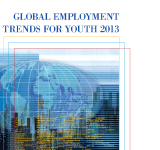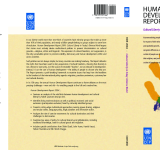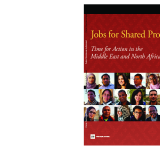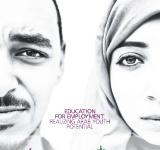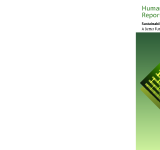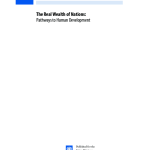entrepreneurship
إن التقييم لسوق العمل في لواءي بني كنانة والمزار الشمالي هو جزء من مشروع يسعى إلى تحسين الأوضاع الاقتصادية والاجتماعية للشابات والشباب السوريين والأردنيين من خلال بناء مهاراتهم وخبراتهم بحيث يصبحوا
يقدم هذا التقرير الصادر عن منظمة العمل الدولية بعنوان "اتجاهات الاستخدام العالمية للشباب 213" آخر المستجدات في أسواق عمل الشباب حول العالم، مسلطاً الضوء على أزمة سوق العمل المستمرة والقضايا البنيوية
Accommodating people's growing demands for their inclusion in society;; for respect of their ethnicity;; religion;; and language;; takes more than democracy and equitable growth. Also needed are multicultural policies that recognize differences;; champion diversity and promote cultural freedoms;; so that all people can choose to speak their language;; practice their religion;; and participate in shaping their culture—so that all people can choose to be who they are. In recent years the Human Development Report has argued strongly that this is as much a question of politics as economics—from protecting human rights to deepening democracy. Human development is first and foremost about allowing people to lead the kind of life they choose—and providing them with the tools and opportunities to make those choices. The 2004 Report builds on that analysis;; by carefully examining—and rejecting—claims that cultural differences necessarily lead to social;; economic and political conflict or that inherent cultural rights should supersede political and economic ones. Instead;; it provides a powerful argument for finding ways to “delight in our differences”;; as Archbishop Desmond Tutu has put it. It also offers some concrete ideas on what it means in practice to build and manage the politics of identity and culture in a manner consistent with the bedrock principles of human development.
Jobs are crucial for individual well-being. They provide a livelihood and;; equally important;; a sense of dignity. They are also crucial for collective well-being and economic growth. However;; the rules and the incentives that govern labor markets in MENA countries have led to inefficient and inequitable outcomes on the personal and collective standpoint. Several underlying distortions prevent a more productive use of human capital and have led to a widespread sense of unfairness and exclusion;; of which the Arab Spring was a powerful expression.
The Arab World faces extraordinary challenges. In a region with the world's highest youth unemployment rate;; millions are frustrated by their job prospects – a frustration born of education that often leaves them unprepared for the marketplace. This report shows that the private sector can be a powerful force for positive change by complementing public efforts to ensure that the region's youth gain the right skills for the jobs being created.
The 2011 Human Development Report argues that the urgent global challenges of sustainability and equity must be addressed together – and identifies policies on the national and global level that could spur mutually reinforcing progress towards these interlinked goals. Past Reports have shown that living standards in most countries have been rising - and converging - for several decades now. Yet the 2011 Report projects a disturbing reversal of those trends if environmental deterioration and social inequalities continue to intensify;; with the least developed countries diverging downwards from global patterns of progress by 2050. The Report shows further how the world's most disadvantaged people suffer the most from environmental degradation;; including in their immediate personal environment;; and disproportionately lack political power;; making it all the harder for the world community to reach agreement on needed global policy changes. The Report also outlines great potential for positive synergies in the quest for greater equality and sustainability;; especially at the national level. The Report further emphasizes the human right to a healthy environment;; the importance of integrating social equity into environmental policies;; and the critical importance of public participation and official accountability. The 2011 Report concludes with a call for bold new approaches to global development financing and environmental controls;; arguing that these measures are both essential and feasible.
The 2010 Report continues the tradition of pushing the frontiers of development thinking. For the first time since 1990;; the Report looks back rigorously at the past several decades and identifies often surprising trends and patterns with important lessons for the future. These varied pathways to human development show that there is no single formula for sustainable progress—and that impressive long-term gains can and have been achieved even without consistent economic growth. Looking beyond 2010;; this Report surveys critical aspects of human development;; from political freedoms and empowerment to sustainability and human security;; and outlines a broader agenda for research and policies to respond to these challenges.
